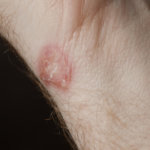Sinusitis is a condition that describes inflammation, irritation, and infection of the sinuses. It’s one of the most common conditions of the sinuses, and it might be triggered by a vast variety of things that include the common cold, allergies or other infections in the body – and sinusitis might even happen as a complication after you’ve healed from another condition such as Scarlet Fever.
Thousands of people are diagnosed with either chronic or acute sinusitis across the world every year: Most of them share more or less the same symptoms, although not all of these cases are long-term (chronic) or accompanied by other similar medical conditions that go along with it.
If you suspect that you might have sinusitis, look for any aggravating factors that might be causing the condition or making it worse. If the condition sticks around after eliminating these factors, the right thing to do is to see your doctor for diagnosis and treatment.
Usually, treating sinusitis is simple.
Here are 14 symptoms of sinusitis that you should know about.
1. Headaches
Headaches are one of the most common symptoms that accompanies a sinus infection or similar conditions such as colds and the flu, although there are a thousand different other conditions that could have headaches as a symptom – and there are many different types of headaches that can mean different things depending on their individual symptoms and onset.
If you experience headaches that feel like a head cold, it could be sinusitis. Other symptoms are likely to be experienced together with this one, including the presence of a fever, blocked nose, sore throat, and other flu-like symptoms.
Other types of headaches include a tension or stress headache (usually attributed to muscle tension built up during the day, during particularly intense physical activity or due to grinding at night) or a migraine, which might be caused by stress, other physical conditions or dietary factors.
See your doctor to be sure of your symptoms and what they could indicate.



